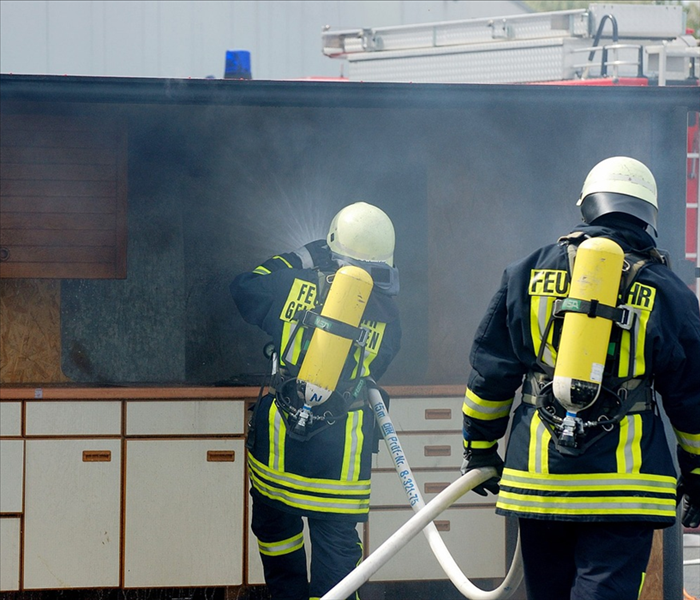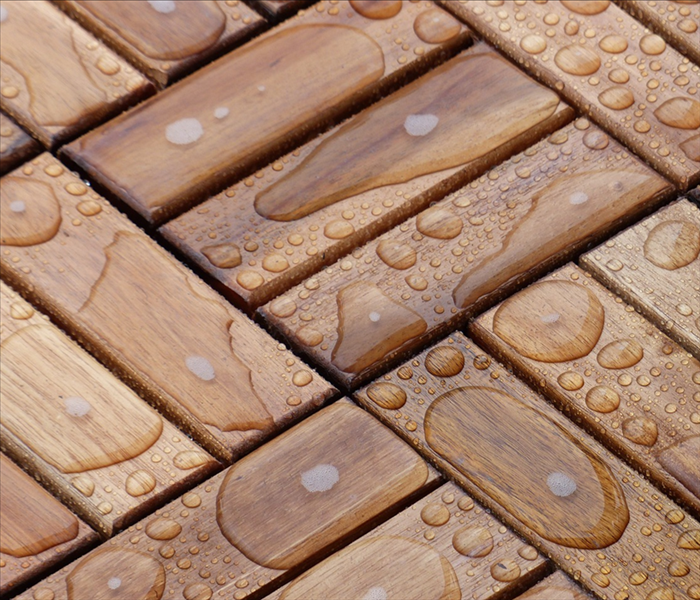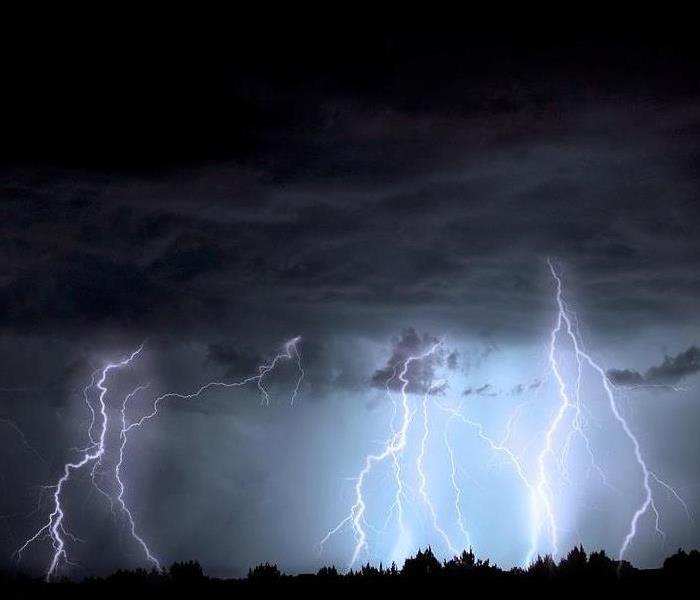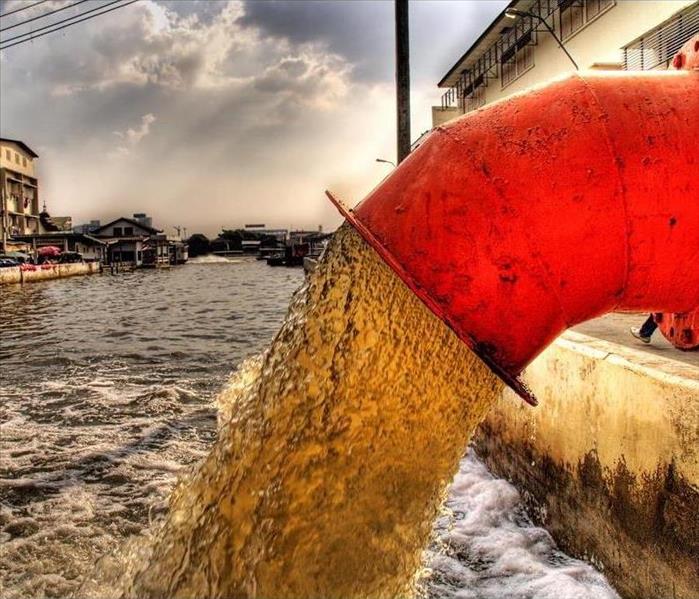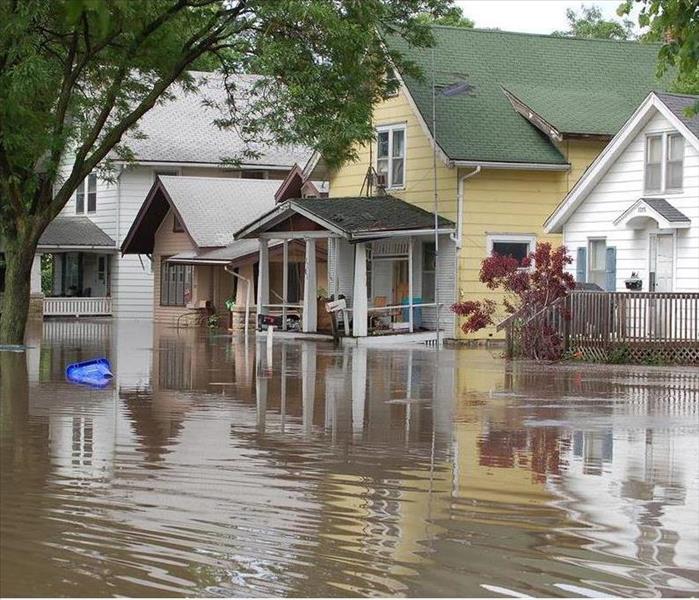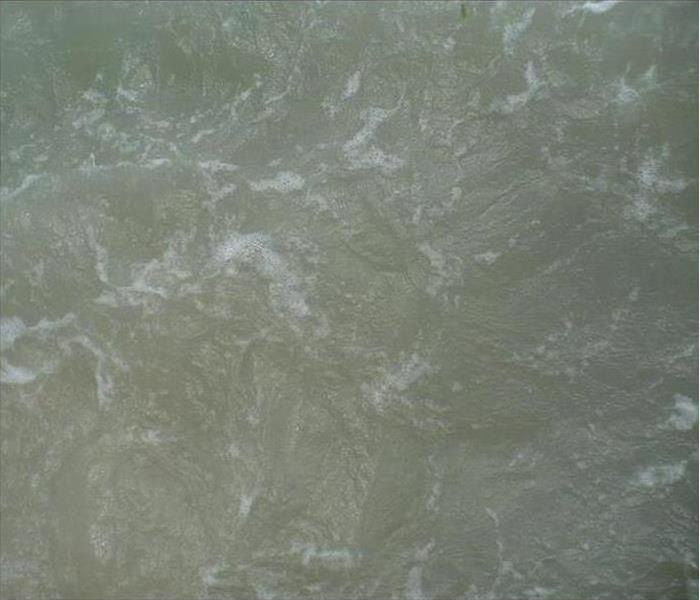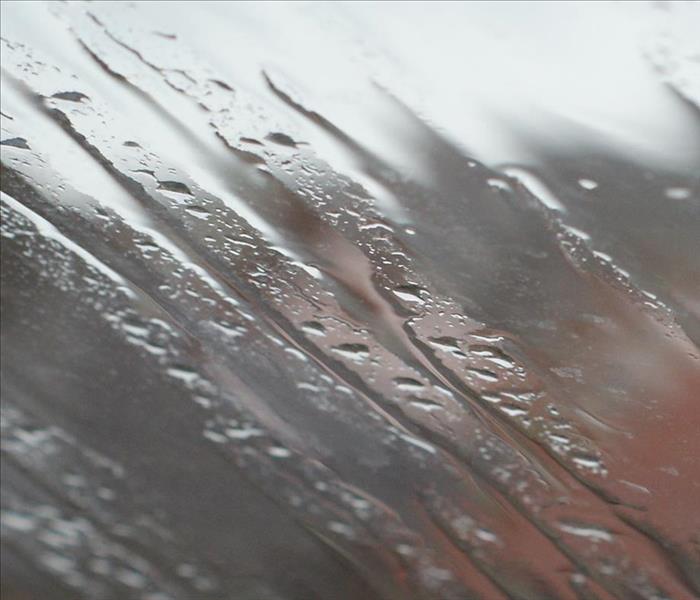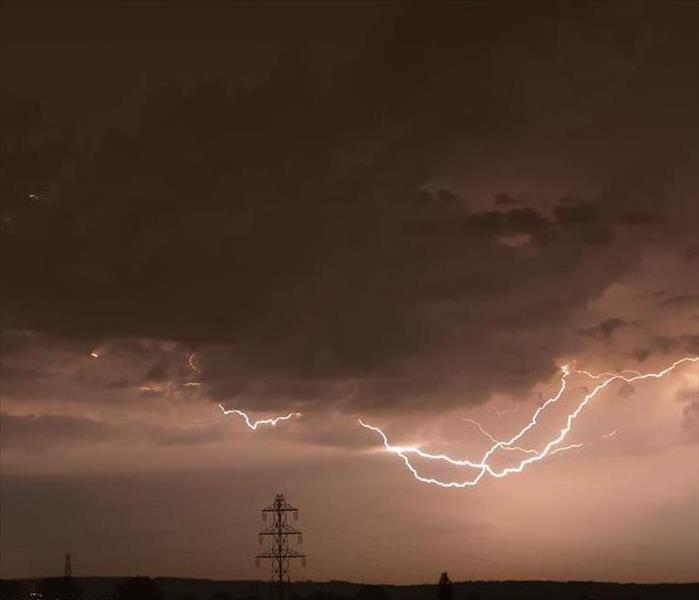Recent Posts
Mold Defense
8/22/2023 (Permalink)
Defending against mold growth can feel like such a major feat to take on, but have no fear, your local mold specialists are on the case! However, just because we are on hand to help whenever mold should occur, we think you should be prepared to prevent mold on your own. Use these following tips to amp up your mold defense:
- Keep the humidity in your home or business between 30-60%
- Make sure your property has property drainage to keep water away from your building's foundation
- Regularly inspect your plumbing and other appliances for any leaks. Water left to sit is mold's favorite food!
- Keep your gutters and drains clear and free of any debris
- Inspect your roofs, windows, and any other potential entryways for water. Perform maintenance ASAP when necessary
- Immediately deal with water intrusions in your home
- Never try DIY mold removal!
- If your home experiences water damage, call SERVPRO of Baltimore's Inner Harbor for immediate assistance, as improper mitigation of water damage can lead to secondary damages such as mold
Dealing with any damage to your home or business can feel so daunting, but that is what SERVPRO of BIH is here for. Other mold cleaning services might not take the time to educate you and answer any questions you might have, but we know how important it is to make sure you understand the process your home is undergoing in such stressful times. We're the number one name in the disaster mitigation industry and we're here to help!
Extinguishing a Kitchen Fire
8/22/2023 (Permalink)
When a fire starts in the kitchen, you need to act fast to keep the fire from getting out of control. But how you act depends on what kind of fire you have and where it is. Follow these instructions for putting out kitchen fires:
If you have a fire in the oven or the microwave, close the door or keep it closed, and turn off the oven. Don’t open the door! The lack of oxygen will suffocate the flames. If your oven continues to smoke like a fire is still going on in there, call the fire department. If you have a fire in a cooking pan, use an oven mitt to clap on the lid, then move the pan off the burner, and turn off the stove. The lack of oxygen will stop the flames in a pot.
If you can’t safely put the lid on a flaming pan or you don’t have a lid for the pan, use your fire extinguisher. Aim at the base of the fire — not the flames. Never use water to put out grease fires! Water repels grease and can spread the fire by splattering the grease. Instead, try one of these methods:
If the fire is small, cover the pan with a lid and turn off the burner. Throw lots of baking soda or salt on it. Never use flour, which can explode or make the fire worse. Smother the fire with a wet towel or other large wet cloth.
Use a fire extinguisher. Don’t swat at a fire with a towel, apron, or other clothing. You’re likely to fan the flames and spread the fire. If the fire is spreading and you can’t control it, get everyone out of the house and call 911! Make sure everybody in your family knows how to get out of the house safely in case of a fire. Practice your fire escape route.
Don't Let Water Wait
8/22/2023 (Permalink)
When a disaster occurs in your home or business, it typically comes and goes. Fires burn and then they die out, wind blows through your neighborhood and then disappears, but water works a little differently than other types of damage. Water stays, and in many cases it continues to get worse and worse.
If you find an area in your flooring, walls, ceiling, appliances, etc. that is affected by water damage, it must be coming from some source. If that water is not removed and the source fixed, then the damage caused by that water will only grow. Oftentimes, it will turn into a nasty mold problem that nobody wants to have to deal with. The longer you wait to mitigate the problem, the more of a problem it will become!
Water damage can also come in many forms such as rotting wood, rusting metal, or even something as simple as mold or mildew. Sometimes it can be very hard to spot, but if you think you’ve spotted the beginnings of a water issue in your space, give us a call for an inspection so we can help you as soon as possible! When it comes to any type of disaster in your home or business, the sooner it is caught and remediated, the better. We are here for you no matter how big or small the disaster may be!
Safety Tips During and After a Flood
8/22/2023 (Permalink)
SAFETY FIRST (For businesses and home owners)
- Account that all employees or family members are safe by establishing evacuation plans in advance, identifying areas outside the building that are designated meeting places. Assign select individuals to keep a list of their assigned team’s names and contact numbers in order to account for their whereabouts.
- If water enters the building and evacuation becomes impossible, move to an upper floor, and wait for rescuers.
- While evacuating, avoid attempting to drive through floods or rising water, nearly half of all flash flood fatalities are auto-related.
- Do not touch electrical equipment if you are wet or standing in water.
- Do not walk through moving water. Even six inches of moving water can make you fall.
- Use no open flames (there may be gas escaping from ruptured mains).
- Avoid floodwaters. Water may be contaminated by oil, gasoline or raw sewage. Water may also be electrically charged. If the water has entered the structure through the flooding of a creek, stream or river, or if it has filtered through insulation during its intrusion, it is considered to be black water and could be hazardous to your health. Avoid contact with contaminated items as much as possible.
- Stay out of any building if it is surrounded by floodwaters.
- Listen for news reports to learn if the community’s water supply is safe to drink.
- Return only when authorities indicate it is safe.
SECURE THE PROPERTY
- Contact local emergency officials.
- Secure main entrances to building.
- Alert Security company and Alarm company of the situation.
STABILIZE THE PROPERTY
- Open basement or low-level windows to equalize water pressure on the building’s foundation and walls.
- Begin water damage mitigation steps only if local emergency officials deem the structure safe to enter.
- Notify your insurance agent or Risk Manager to determine insurance policy guidelines and steps to take.
Let's talk about Sewage Water
9/27/2022 (Permalink)
It's definitely not the most pleasant problem to talk about, but sewage backups or leaks are very real and very serious issues you could face in your home or business.
Earlier we discussed how to tell if the water flooding in your property is clean or contaminated. It's probably the most important to know that sewage water should be assumed to be contaminated and hazardous at all times (until one of our professionals determines otherwise). Sewage water is typically referred to as category 3 black water. This classification is due to the dangerous contaminants in it. It's important to note that sewage water has the ability to appear clean. This is an instance of top water. If sewage runoff looks clean, it's usually because the waste and contaminants have sunk to the bottom. This water is still categorized as black water; not for the color, but for the risk it carries with it. In most cases of any standing water in your home, it's crucial to understand that just because you can't particularly see the contaminants or just because the water looks clear...doesn't mean that it is safe to try to mitigate yourself.
Our SERVPRO of Baltimore's Inner Harbor crews are specifically trained to deal with hazardous water and how to clean any harmful remnants once the water is drained. Without that training, your knowledge is your most powerful tool to keep you from putting yourself at risk upon spotting standing water in your residential or commercial property.
If you experience sewage backup or sewage related flooding, let us be your first call. We make it, "Like it never even happened."
SERVPRO of Baltimore's Inner Harbor
410-637-3433
Flooding is always a risk
9/15/2022 (Permalink)
Unfortunately, just because you don't reside in a flood zone doesn't means that you won't get flooding.
Even the driest areas can experience what are known as flash floods. Rivers, streams, and lakes are almost always overflowing their banks, given a couple of rainy days. New construction in your neighborhood can even change runoff patterns in the area and can increase our flood risks.
The cost of flood damage is expensive. This cost can vary depending on the type of damage and where the water came from. Any tips that can help prevent this has to be worth the time to try them. You can't stop a flood from damaging your home from the above situations but you can do some things to keep a flood from happening inside your home.
Here are some things to try:
• An inspection and flushing your water heater once a year, by a plumber, can contribute to preventing it bursting on you and flooding the area.
• Replacing the rubber hoses on all appliances that use water with metal braided ones can help to avoid the failing of the rubber ones as they can get hard and burst. Check all hoses; even the metal braided ones every year.
• Leaks from toilets are often indicated by a little leakage from the base.
• Do you know where to locate the main water shut-off? If a pipe burst, inside, you need to be able to get it turned off quickly.
• If you have a sump pump, now is a good time to get it checked and think about a backup unit.
• Always be looking for signs of plumbing leaks, such as on ceilings and walls; you are looking for stains and moisture on those walls and floors.
• Leaking or even broken pipes are often gushing water, and it is not noticed because it might be hidden. Check out your water usage when no faucets are turned on; locate the water meter and take a reading, then use no water for an hour or so and read it again. Has it moved? If so, you have a leak someplace, so get a plumber to check it out.
• Always monitor your monthly water bill. If it goes up a lot one billing cycle, you might have the need for a plumber to come in and check all connections.
• Since a lot of water comes from inside your home and can damage many walls, floors, furniture and provide the moisture needed for molds to grow, doing whatever can be done to prevent leaks is a good exercise to undertake.
Understanding Types of Water
8/30/2022 (Permalink)
Water damage is always inconvenient, no matter the type of water causing it; however, understand which type of water you're dealing with can be crucial to minimize destruction until our professionals arrive.
Clean water can be from a broken pipe/water source, or even rainwater.
Clean water becomes gray water after it has been left untreated. Untreated water allows for bacteria and fungi to grow and the water then becomes contaminated. This water can become hazardous.
Black water is typically caused by sewage damage or natural disaster flooding. Black water should ALWAYS be handled by professionals.
How do you minimize the damage from these water types?
For clean water:
If you can, shut off the water source.
Turn off any circuit breakers to affected areas. This protects from any potential electrical shock. Do not enter any rooms with standing water because unknown shock risks could be hiding.
Mop, blot, or wipe down any excess water.
To start drying any damage or soaked upholstery, remove and prop them up to start the drying process.
Move valuables to a safe place
Remove colored items that might bleed or run, causing stains.
Never use a vacuum to remove water. Shock risk is high!
If your ceiling is wet, don't turn on any ceiling fixtures. Don't enter the room is the ceiling is sagging from retained water.
For contaminated water:
Avoid all contact with sewage. Wash yourself thoroughly if you come into contact with contaminated items.
Do not walk through affected areas.
Do not turn on your HVAC system as it could spread contaminated air.
Do not use fans. Air flow could spread contaminants.
If food or personal hygiene products are exposed to contaminated area, discard them.
Water damage can be traumatic, but the cleanup and restoration process doesn't need to be.
Maryland Weather and Rain
8/30/2022 (Permalink)
April showers bring May flowers, right? Well when you live in Maryland, July showers can bring August flowers, or February showers can bring March flowers, or just about any combination of months can bring showers and flowers! We live in a wacky state with a lot of wacky whether, and with unpredictability comes possible damage to your homes or businesses! Water damage is not fun to deal with and can really put a “damper” on things (yes, the pun was intended).
We’ve had a couple flash floods recently in our county and that means we need to be ready for any degree of water damage. Make sure your gutters are in order, fix up any cracks in your concrete, and do your best to waterproof your home using caulk or other certified waterproof material! Remember that SERVPRO of Baltimore's Inner Harbor is here for you. From wood corrosion to appliance damage to a waterlogged carpet, we’re ready for any issue you may face during this rainy weather!
Helping your Business Discretely
8/30/2022 (Permalink)
When your business has a situation that calls for SERVPRO's help, SERVPRO is there to work for you. SERVPRO understands that if possible you will want your business to still operate during clean up, even if at sub capacity.
SERVPRO will put containment walls up around the work area. If possible, SERVPRO will work during non-traditional business hours to get the work done if that is what is requested.
SERVPRO will be discreet when it's needed for any sensitive clean ups. SERVPRO takes pride in our staff and their sensitivity to the fact that your business is the priority. We want to make sure your business is up to full capacity as soon as possible.
SERVPRO understands that an unexpected period of lost productivity and revenue can be devastating to any business large or small.
SERVPRO has the training and resources to get your business up and running in the fastest time possible.
What you don't know about Lightning
8/30/2022 (Permalink)
Lightning fires most commonly occur during the summer months when afternoon and early evening storms are at their peak. Homes in heavily wooded areas are extra vulnerable to lightning strikes that set the surrounding landscape on fire. Most people might already know this but do they know what to do to help their home could be as easy as installing a lightening rod or the professional term would be a lightning protection system.
These systems are not intended to prevent a strike. Its purpose is to provide a safe path on which the current can be safely directed to the ground. Talk with an expert and find out if you should have a system on your house.
You will also want to help protect the inside of your house during a storm. Lightning can damage the electronics, telephone and other systems in your house connected to an electrical outlet. The easiest way to protect your appliances is to unplug them when you first hear the clap of thunder.
Surge protectors can help but are not fail-proof if the strike is a powerful one. To protect yourself, stay away from all plumbing including toilets, sinks and faucets as the pipes of your house make excellent conductors. Stay off the phone , corded phone scan conduct the lightening and therefore strike you when your on the phone.
Lightening is amazing and beautiful but also deadly. Don't ever let yourself forget that.




 24/7 Emergency Service
24/7 Emergency Service

